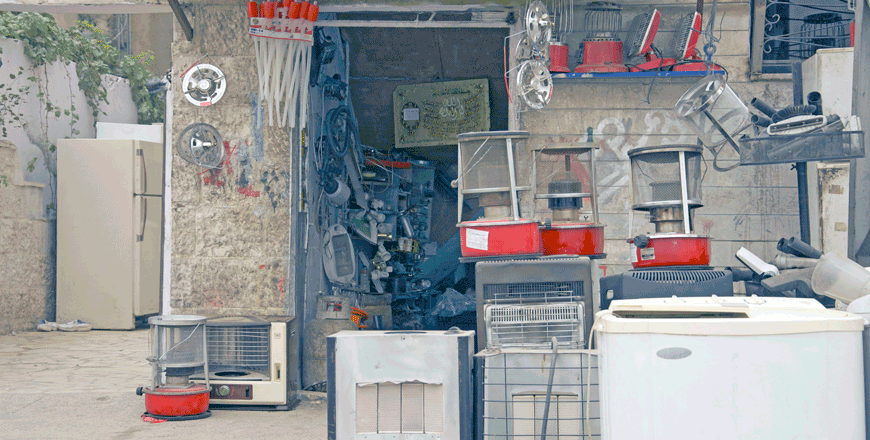You are here
Deepening income inequality signals end of Jordan’s middle class, say economists
By Rayya Al Muheisen - May 28,2023 - Last updated at May 28,2023

Economists are warning that Jordan’s middle class is facing extinction, and is nearly devoid of any classification after dwindling rapidly over the past few decades (JT file photo)
AMMAN — Economists are warning that Jordan’s middle class is facing extinction, and is nearly devoid of any classification after dwindling rapidly over the past few decades.
The COVID-19 pandemic and the inflationary wave resulting from the Russian-Ukrainian crisis have dealt a severe blow to the middle-class in Jordan, causing it to lose its foothold within the social, economic and cultural fabric of Jordanian society.
Economist Husam Ayesh told The Jordan Times that the decline in the ratio of the middle class seems to be a prevailing trend in many countries worldwide, including global superpowers.
Ayesh emphasised that the social standing of the middle class in Jordan has significantly diminished over the years, and no longer enjoys its former position as the driving force behind the Kingdom’s socioeconomic, political and cultural dynamics.
The shrinking middle class is a phenomenon currently observed in numerous nations; it is evident that Jordan is no exception, said Ayesh.
“In recent years, the Jordanian society has revolved around two distinct groups: A small, wealthy elite that controls the wealth and resources, accounting for less than 10 per cent of the population, and a larger, marginalised majority comprising remnants of the middle class, along with low-income and impoverished individuals, representing 85 per cent of the total population,” Ayesh added.
Approximately 80 per cent of Jordan’s population relies on salaries as their primary source of income, while only 15 per cent derive their earnings from their own businesses or ventures. “These indicators highlight the almost negligible presence of the middle class in the social and economic equation,” said Ayesh.
The Jordanian middle class “used to be” the true catalyst and driving force behind the country’s economic activity and various facets of life, Ayesh noted. However, its influence has noticeably waned due to economic policies implemented by successive governments.
“The local tax system, heavily reliant on sales tax, has curtailed the role and presence of the middle class,” Ayesh said.
Additionally, succesive Jordanian governments have failed to raise citizens’ salaries for an extended period, resulting in the erosion of purchasing power and an increased burden on the middle class, the economist added.
“External economic crises have also exerted additional pressures on this segment,” he noted.
In an effort to revive and empower the middle class, Ayesh called upon the government to implement special tax and economic programmes to prompt a resurgence of the middle-class and reinstate their pivotal role in the economy.
Economist Wajdi Makhamreh affirmed that the Jordanian middle class has been diminishing over the years due to government policies and decades-long salary stagnation irrespective of inflation.
“Despite the soaring cost of living, the middle class’s salaries remained steady, forcing the middle class to reprioritise their spending and shift their consumption patterns,” Makhamreh told The Jordan Times.
Consequently, this has led to a decline in economic activity, said Makhamreh.
Makhamreh noted that this quasi-erasure of the middle class has negative repercussions on the national economy as well as the Jordanian social fabric.
“Economic activity loses momentum, impacting other indicators of the local economy,” Makhamreh added.
Additionally, a portion of the middle class could be pushed closer to the poverty line, requiring the government to provide education, healthcare, and social protection for a segment of society that traditionally “self-sustains” in these areas.
To safeguard the middle class, ensure economic stability and promote growth, Makhamreh stressed the need for government efforts to increase middle class incomes in particular, but also raise salaries for all citizens.
“Attracting productive investments would stimulate the national economy and increasing government spending on the middle class is a crucial step,” Makhamreh said.
Related Articles
AMMAN — A good tax system should be progressive, have a positive, non-discriminatory distributional effect, and be aligned with domestic and
AMMAN — Freezing the tax imposed on kerosene is bringing relief to low-income families, with economists considering the move to be a social
AMMAN — A total of 13,000 youth have completed the registration process for the National Unemployment Programme, according to Labour Ministe













